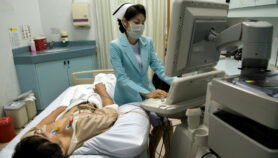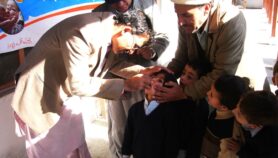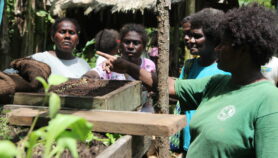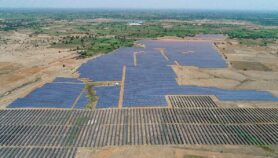By: Fatima Arkin
Send to a friend
The details you provide on this page will not be used to send unsolicited email, and will not be sold to a 3rd party. See privacy policy.
[MANILA] Technological growth, globalisation and climate change are redefining what work means in today’s world, presenting huge challenges for countries in the Asia-Pacific region.
The region played a critical role in the spread of globalisation in the 1990s but a new report by the UN Development Programme (UNDP) points to a shift in the types of jobs that are now outsourced and offshored towards ones with higher skills, particularly in information and communications technology (ICT).
“The demand for tomorrow’s labour force cannot be met with the knowledge of yesterday,” Selim Jahan, lead author of the report and director of the UNDP’s human development report office, tells SciDev.Net. “There is a scope for retraining younger people.”
The report notes that wider access to technology through South-South cooperation along with pertinent skill sets and adequate finances will help the region move closer in line with sustainable development.
But as of 2014, 2.5 billion people living in the Asia-Pacific region did not have access to the internet. The poorest and most disadvantaged people are usually the ones left out. Youth unemployment in South-East Asia and the Pacific ranges from 0.5 per cent in Cambodia to 54 per cent in Kiribati.
Emphasis on science, technology, engineering and math (STEM) education, particularly with regards to women, can help young people develop skills that are in demand, notes Jahan.
Imelda Nicolas, chairperson of the Philippine Commission on Filipinos Overseas, agrees on training the youth in desired skill sets particularly on STEM.
“No matter what, science and technology can cross borders,” she says even as she remains hopeful that the younger generation will find decent jobs and stay home.
Roughly, about 10 per cent of the Philippine population live or work abroad as many are forced to leave due to poverty and lack of adequate job opportunities.
But aside from employment, setting up their own businesses that is adaptive to the times is another way out of poverty.
Jahan says that many of the millennials interviewed for the report expressed an interest in owning their own business, whether a start-up or self-employment, that focuses on mitigating the effects of climate change, greening the economy and promoting renewable energy.
“Some of the successful entrepreneurs are even going back to social enterprises,” he adds.
Jahan encourages the creation of a one-stop shop where young entrepreneurs can get information on marketing and training as well as access resources, including credit facilities, that they might otherwise struggle to obtain.
This piece was produced by SciDev.Net’s South-East Asia & Pacific desk.
References
United Nations Development Programme Human Development Report 2015














